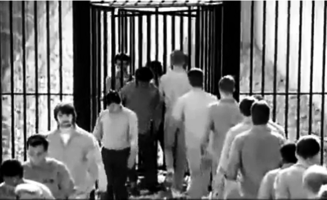CRIME: Is letting felons cop pleas to lesser charges working? Research says no.
 |
| Photo: www.ibm.com |
A UC Davis study comparing violent misdemeanor convictions with their original criminal charges has found that subsequent violent crimes could be prevented if criminal charges were reduced less often during plea bargaining.
 |
| Suggested reading click on image |
"Federal law prohibits felons from legally purchasing firearms, but individuals with violent misdemeanor convictions face no such restrictions in most of the country," said Garen Wintemute, professor of emergency medicine and director of the UC Davis Violence Prevention Research Program. "Our study found that people with convictions for violent misdemeanor crimes who subsequently purchased handguns have very high rates of arrest for firearm-related or violent crimes later on. We need to consider the merits of prohibiting people convicted of violent misdemeanors from purchasing handguns and consider whether felony charges should be reduced less often."
For the study, Wintemute and colleague Mona Wright reviewed criminal records, linking violent misdemeanor convictions with their original criminal charges. Nearly 40 percent of the 787 individuals in the study had misdemeanor convictions resulting from felony charges. The overwhelming majority of records were for men (96.2 percent), with most (47.8 percent) having only one prior conviction of any type. Twenty-five percent had two prior convictions and 27 percent had three or more.
Within this group, Wintemute then identified those who purchased handguns and had California arrests within three years of the handgun purchase. Of the 699 records available for follow up, 34.5 percent of individuals were arrested -- 23.8 percent for violent or firearm-related crimes, such as homicide, rape, robbery and aggravated assault, among others. Age, number of prior convictions and time since the most recent conviction were associated with risk of subsequent arrest. Risk for those originally charged with felonies was similar to that for those originally charged with misdemeanors.
"Nearly 25 percent of subjects who had purchased a handgun were charged with a new firearm-related or violent crime within three years of purchasing a handgun," said Wintemute. In urban counties, the majority (95 percent) of convictions for crimes charged as violent felonies are arrived at through plea bargaining, which commonly involves a reduction from felony to misdemeanor charges. We may be missing an opportunity to prevent those most at risk for committing violent crimes from legally purchasing firearms."
* * * * *
Story Source: Materials provided by University of California - Davis Health System. Mona A. Wright, Garen J. Wintemute. Firearm Prohibition for Persons Convicted of Violent Crimes. American Journal of Preventive Medicine, 2014
Comments
Post a Comment